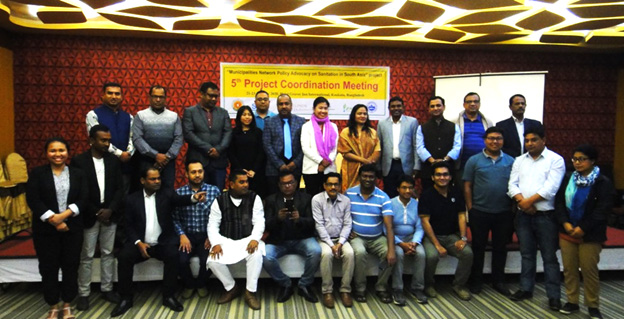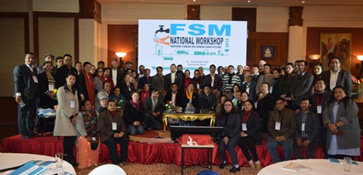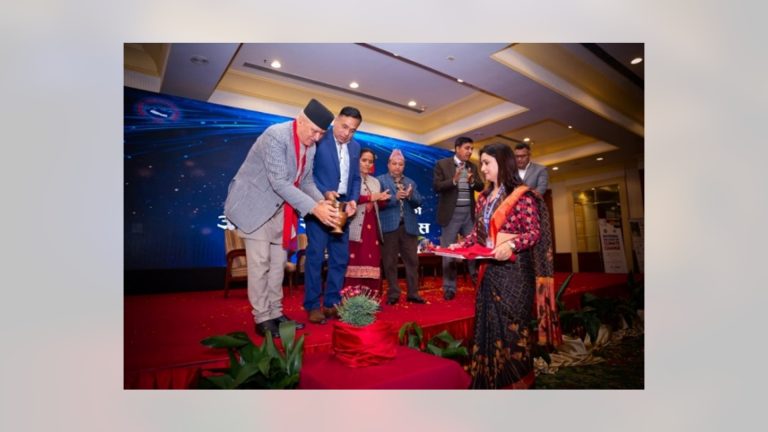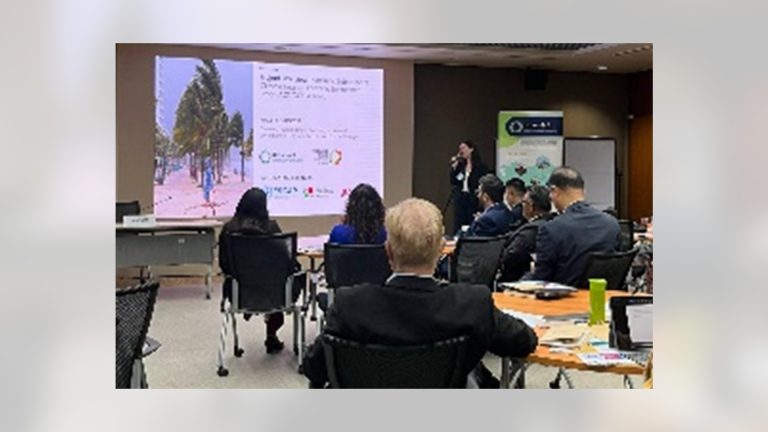21 – 24 January 2020 | KUAKATA – UCLG ASPAC and its partners at both local and international levels convened a coordination meeting to take stock of the progress jointly achieved under the “Municipalities Network Policy Advocacy on Sanitation in South Asia.” By 2019, more than half of the Bangladesh’s total 329 municipalities and the Nepal’s total 293 municipalities have benefited from the project, through their orientation on the Faecal Sludge Management (FSM) value chain and its legal aspects. The work has been conducted by UCLG ASPAC in collaboration with Municipal Association of Bangladesh (MAB) and Municipal Association of Nepal (MuAN) and technical partner the Stichting Nederlandse Vrijwilligers or SNV (“Foundation of Netherlands Volunteers”) in Bangladesh and the Environment and Public Health Organisation (ENPHO) in Nepal.
During the meeting, the participants took stock that 156 municipalities had been oriented on the matters in Bangladesh. The number will likely increase as the Institutional Regulatory Framework (IRF) on FSM has already been adopted and distributed to all municipalities. The IRF was developed upon a National Action Plan of the Local Government Division of Bangladesh and serves as a legal basis to address FSM. MAB was also one of the members of the IRF Development Committee and has contributed to develop the National Action Plan.
“Faecal sludge management is now the focus of most municipalities in Bangladesh. The demand for FSM is increasing and we are currently orienting about the IRF to our regional committees,” said Dewan Kamal Ahmed, President of MAB and Mayor of Nilphamari Municipality during the Coordination Meeting in Kuakata, Bangladesh from 21-24 January 2020. While UCLG ASPAC’s project is being piloted in five municipalities in Bangladesh (Bera, Jhenaidah, Lalmonirhat, Natore and Shariatpur), its impact is would be far reaching to all 329 municipalities.
Shahidul Islam, Governance Advisor – WASH, Urban Sanitation Program of SNV, discussed about the importance of the IRF as it enables municipalities to understand their legal obligation to address FSM, and consequently take it into their consideration on sanitation work plan and budget. “This would stimulate municipalities to focus their attention beyond open-defecation free (ODF) and drain issues, which is still currently the case,” he added.
MAB leaders have expressed their commitment for inclusive and total sanitation in the Khulna Declaration during the City-Wide Inclusive Sanitation Workshop organised by SNV at Khulna, Bangladesh in April 2019. Inspired by this initiative, the Municipality Association of Nepal (MuAN) has come up with a Kathmandu Declaration during the Mayors Forum on Urban Sanitation (National FSM Workshop) that took place at Kathmandu, Nepal in 18-19 December 2019. The 9-point Kathmandu Declaration, among others, ensures collaboration between federal, provincial and local governments to develop policies for sustainable FSM, under the framework of urban sanitation. It also helps mobilise concerned stakeholders to utilise information communication technology (ICT) and the media in Nepal to raise awareness on this matter.
“In the past, we had to run after Mayors in Nepal trying to explain that we need to work on FSM. Now, the Mayors themselves are approaching us to work together on FSM. The impact of the project is quite astonishing,” said Bipin Dangol, Executive Director of ENPHO during the Project Coordination Meeting. The pilot municipalities in Nepal include Lahan, Dhulikhel, Lamahi, Waling, and Bheemdatt Municipalities.












